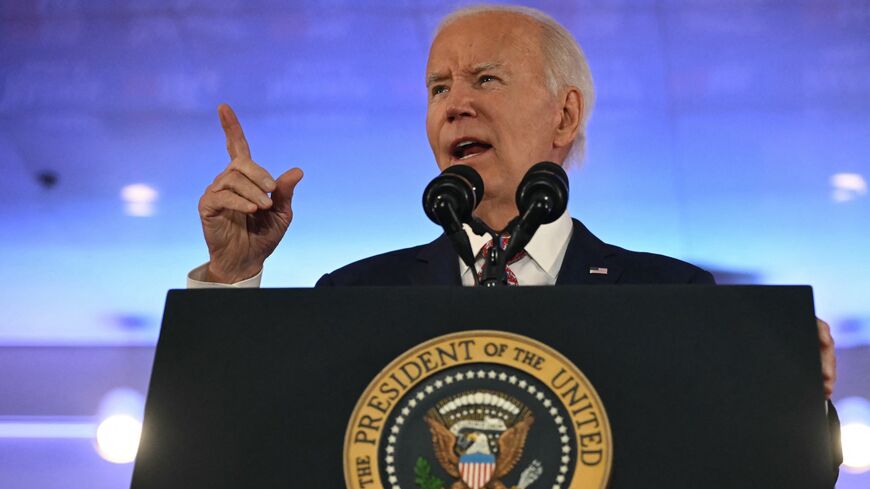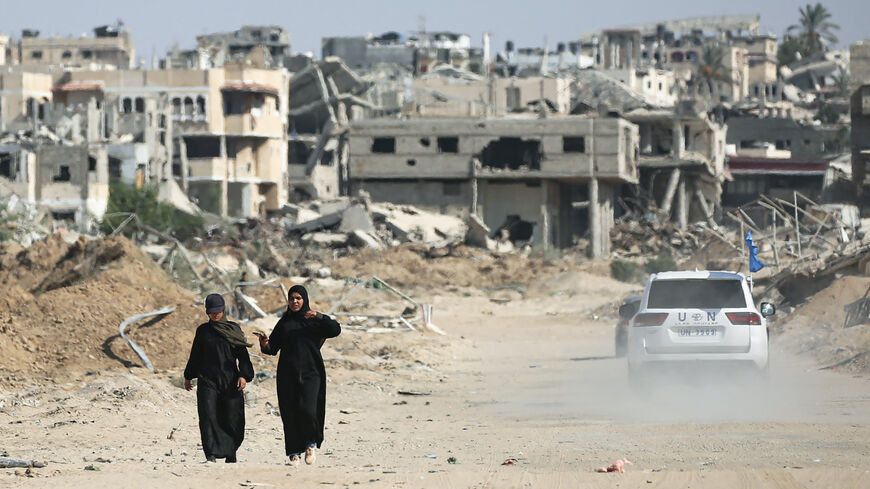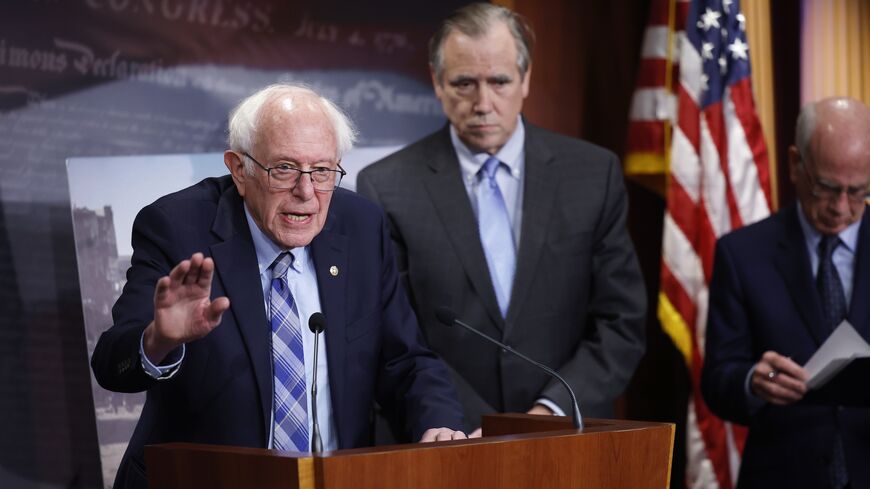Despite missed deadline to boost Gaza aid, US says Israel arms flows to continue
The Biden administration will not follow through with threatened consequences after Israel missed a deadline to surge humanitarian assistance to Gaza.

WASHINGTON — The United States will not be restricting military assistance or imposing other consequences on Israel, despite its failure to fully meet a Tuesday deadline for increased aid flow to the Gaza Strip.
Deputy State Department spokesperson Vedant Patel said Israel has taken steps in the right direction, including by opening a fifth Gaza border crossing, expanding the Muwasi humanitarian zone and waiving some customs requirements that constrained aid groups.
“The hope and the desire is that things like that will make it possible for an additional increase in humanitarian aid and trucks to get to the places where it needs to go,” Patel told reporters Tuesday.
But Israel fell well short of the criteria that Secretary of State Antony Blinken and Defense Secretary Lloyd Austin set out in an Oct. 13 letter to senior Israeli officials. The pair outlined “concrete measures” needed to reverse the downward humanitarian trajectory in Gaza, where the United Nations says the amount of aid entering has fallen to its lowest level in a year. According to COGAT, the Israeli military body tasked with coordinating Gaza's humanitarian aid, an average of 57 trucks per day entered in October, compared to the minimum 350 trucks demanded by Blinken and Austin.
Israel was given 30 days to act or risk triggering US law barring arms and other security assistance from going to countries that restrict the delivery of US-backed humanitarian aid. Patel said Tuesday that the State Department had not assessed Israel to be in violation of US law.
Its ultimatum to Israel carried less weight following the election of Donald Trump, who is staffing his foreign policy team with pro-Israel hawks who would have likely rolled back any consequences that were imposed over the Biden administration’s lame-duck period.
President Joe Biden’s critics on the left are likely to view Tuesday’s decision as another US stamp of approval for Israel’s military conduct in Gaza, where local health officials say more than 43,000 Palestinians have died.
“I would not view it as giving them a pass,” Patel told reporters Tuesday. “If we don't continue to see steps in the appropriate direction, we certainly will enforce US law.”
Israel denies accusations that it’s obstructing aid to Palestinian civilians, blaming the United Nations and relief organizations instead for distribution issues.
Blinken discussed the modest steps Israel has taken to bolster aid in a meeting with Israel's Strategic Affairs Minister Ron Dermer in Washington on Monday. The top US diplomat emphasized “the importance of ensuring changes lead to an actual improvement in the dire humanitarian situation,” according to a State Department summary of their meeting.
Earlier Tuesday, a group of eight major aid organizations said that not only did Israel fail to comply with the Biden administration’s call for a surge in humanitarian assistance, but that its military operations in northern Gaza have prevented aid workers from reaching the population there. As Israel’s offensive against Hamas militants in the area continues into its second month, a United Nations-backed panel said Saturday that northern Gaza is at risk of imminent famine and that action is needed “within days, not weeks."
The aid organizations, which included Oxfam, Save the Children and the Norwegian Refugee Council, also said Israel failed to increase security for humanitarian sites and frontline responders, with airstrikes killing at least four Gaza aid workers during the letter’s 30-day reporting period.
Tjada D’Oyen McKenna, CEO of global aid group Mercy Corps, said the Biden administration has not done enough to hold Israel to account, even as aid organizations like hers document the continued impediments to aid delivery.
“The clear and transparent failures to meet the United States’ own standards must now lead to greater action or risk pushing millions of people toward preventable suffering and death,” McKenna said in a statement.






